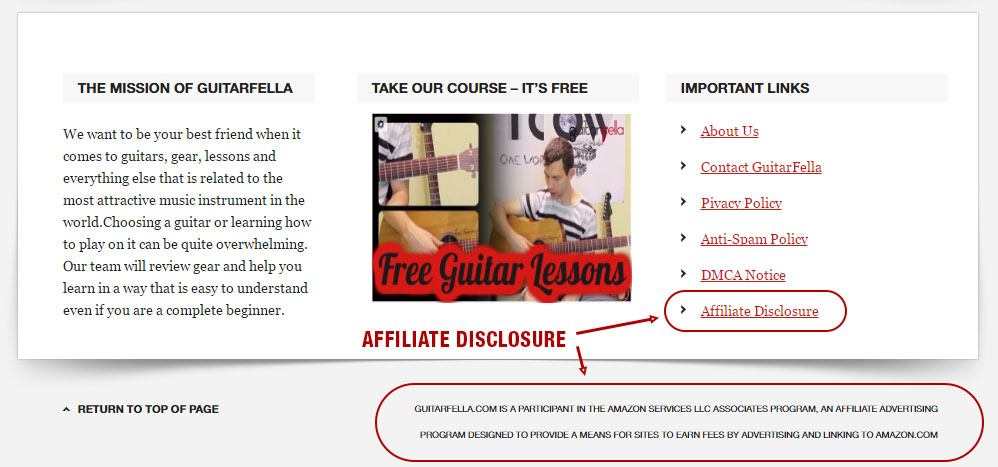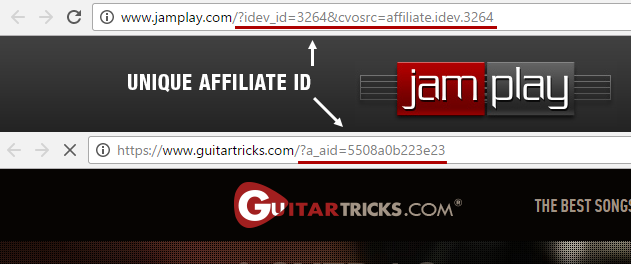
You may not know this, but some of the stuff you read on the internet won’t be true. I say this with tongue firmly in cheek, but if you didn’t know… well, now you do.
Fact is, there are many reasons why people mislead others online… but the most common one is greed. They do it for money. Nowhere is this better illustrated than in the rise of fake online reviews posted by individuals looking to make a quick buck recommending companies who pay them for sales referrals.
The dark side of Affiliate Marketing…
Affiliate Marketing is where promoters (affiliates) get paid by companies (vendors) for recommending their products. While affiliate marketing isn’t bad in itself, it can turn bad when unscrupulous individuals use misleading marketing practices in order to get ahead in an increasingly competitive space.
To understand the problem, consider what it means to do a product review. For a review to be genuine, the reviewer must place him or herself at a distance from the product – acting as an unbiased 3rd party observer. Affiliates by comparison, are inherently biased, because they put themselves directly in line to gain from the product recommendations they make.
Now, don’t get me wrong. I’m not against affiliate marketing and product endorsement. What I am against is when affiliates post product reviews as if they are some unbiased observer, which simply isn’t true.
But why do so many affiliates want to do product reviews rather than open endorsements?
Many affiliates try and pass off their product endorsements as product reviews. This is because the word ‘review’ makes them seem more trustworthy, and they want you to trust them. The more trust, more likely you are to buy the products they are pushing.
The truth is, affiliate reviews are really fake reviews, created with the intent of misleading consumers into buying products they might not otherwise have bought.
We’ve found plenty of fake reviews of Jamorama… often where the affiliate provides misleading information about our product in an effort to bring us down and position another guitar course as the better option (most likely because it pays the highest commission). Unfortunately, there’s not much we can do about these shady affiliates making false claims about us, other than to educate the market about this issue and help people to spot these sham reviews…
To do that we’ve come up with the following 3 step guide:
The Jamorama Guide to Spotting Fake Product Reviews
3 easy steps to protect yourself against affiliate scams

Learn how to spot a biased review so you don’t get scammed.
Step One – Check For Author Bias
Does the review’s author treat each product fairly? Do they use the same criteria to judge one product as they do the others? In one example of a fake guitar lessons review we found, the affiliate starts their review of Jamorama like this:
“If you go to the Jamorama homepage, you’ll probably be impressed. The design of the site is nice and clean. The creators of the course promise the world. The testimonials towards the bottom of the page are nothing short of extraordinary…
…but as we all know, it’s easy to make false claims, and it’s even easier to create “testimonials” that are completely made up.”
Here the author is not so subtly suggesting that our marketing is making promises that our product can’t deliver, and that our testimonials are possibly made up. Even though there is no evidence of this being the case, the suggestion is enough to discredit us in the eyes of the customer…
Yet when the same author starts their review of another popular guitar lessons site, GuitarTricks, you get this:
“Despite having “tricks” in the name, GuitarTricks is a lot more than just helpful hints and tips – it’s a full-fledged course to learning guitar for beginner, intermediate, and even expert players. You can see this in action without signing up anywhere – the homepage autoplays songs from simple to complex. It’s cool.”
You’ll notice a big change in tone and the fact that when GuitarTricks does a nice job of their marketing, it’s seen as ‘cool.’ When we do a good job on ours, it’s viewed as ‘promising the world.’
Clearly this reviewer takes us all for idiots and hopes we won’t see through this thinly veiled product beat up… but we’re smarter than that. When you see a reviewer using different sets of criteria to judge similar products, it’s probably a scam… hit the back button.
Step Two – Check the page for an Affiliate Disclosure Notice
FTC regulations state that Affiliate Marketers must disclose their relationship to the retailers they are promoting, and they must make it conspicuous (i.e. visitors to the site must be able to see it.)
Unfortunately, many affiliates don’t do this, or if they do, they place it in very small text at the bottom of the page where people are less likely to see it.
If you think the review you’re reading sounds fake, check the rest of the page for an Affiliate Disclosure Notice. If you find one, you can be sure you are reading a product endorsement, not an unbiased review.

An Affiliate Disclosure tells you the owner of the site is making money from the products they recommend.
Step Three – Check the product URL
The last step in confirming whether or not you are dealing with a fake review, is to check the product URL for a unique affiliate ID.
Affiliate marketing makes use of specially tracked affiliate links that contains unique information about the affiliate making the referral. This is important, because in order to know which affiliates to pay, the product vendor must know who sent visitors to their website, and which of those visitors converted into a sale. It all has to be tracked and traceable back to the affiliate.
You can use this piece of information to check whether or not you are dealing with an affiliate. Just look for their unique identifier in the URL provided by the reviewer. It’s usually a number (but not always), and usually appended to the end of the link.
Regular, unaffiliated links look like this:
www.domainname.com
Affiliate links look like this:

Look for the unique affiliate id appended to the URL.
Where Can I Find Genuine Jamorama Reviews?
Fortunately, there are still some trustworthy places providing genuine product reviews. One such source is TrustPilot – A company that specializes in collecting honest product reviews from actual customers who have used the products they are reviewing.
We suggest to all our customers that they review us on TrustPilot and welcome their feedback as it only serves to help us make Jamorama a better place for guitar students.

Unlike the affiliate reviews, the reviews on TrustPilot are written by actual customers and they’re genuine… heck, one person even gave us a one star rating! No-one’s perfect I guess.
The Ultimate Product Review?
I could go on about Jamorama until I’m blue in the face, but you still wouldn’t believe me. So why not try it out for yourself?
Sign up for a FREE Jamorama Basic Membership and you’ll get access to three excellent beginner guitar courses: Beginner Guitar Method – Stage 1, Acoustic Guitar Maintenance, and the Beginner Guitar Chords course… plus, you’ll also get access to our vibrant social network where you’ll find thousands of other guitar students like you, helping one another to be better guitarists!

